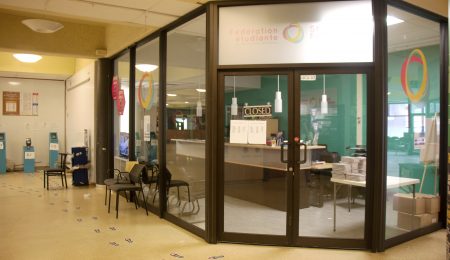Tuition has been rising in Ontario since the end of the freeze in 2006. Tuition increases outpace the rate of inflation and most students would be in favour of another freeze.
Regardless of how you may feel about student government, when the Student Federation of the University of Ottawa (SFUO) protests tuition fee increases, they are accurately representing the views of the majority of the student body.
However, at the recent SFUO-led protest requesting a drop in tuition fees at the opening of the Advanced Research Complex (ARC), many students feel their interests were not well represented. Not because they wish for tuition to continue rising, but because they feel this particular protest was inappropriate and ineffective. And that it was.
A group of science students, for example, wrote a letter to the Fulcrum this week on behalf of the Faculty of Science to address their disappointment with the SFUO. All over social media, many expressed that they found the protest “disgraceful,” “offensive,” and “disrespectful.”
The majority of the critique centered on the impropriety of staging the protest at the ARC opening. It should be obvious that the opening of a new science research facility is certainly important to science students, who make up more than 10 per cent of the total student population.
Not only that, but the university as a whole can be proud to be part of a big step in state-of-the-art research and the resulting boon to the school’s reputation. A protest at the opening of this facility seems to be missing the chance to celebrate some common ground between students and the administration.
It surely had tactical value with the presence of the minister and the press. Calling attention to the government’s role in tuition increases is what we expect the SFUO to do, since they represent student interests at the university. But while it may have been effective for disseminating their message to a larger audience, the protest did damage to their credibility.
The response indicates that there are students who are paying attention and aren’t pleased that activism was prioritized over respect for the hard work of researchers who applied for the funding to ensure our university has world-class facilities.
There’s also the question of whether the protest is inhibiting relations between the SFUO and the administration and Board of Governors (BOG). In the last election, vice-president of university affairs Chris Hynes said he wanted to work on the relationships he built with the administration and the BOG while he was in office the year before. Interrupting vice-president of research Mona Nemer at the ARC opening ceremony cannot have helped to build those relationships in such a way that SFUO requests and concerns will be taken seriously and respectfully.
In spite of his joking tone, president Allan Rock seemed sincere when he said at the ARC’s opening that he’s proud of all U of O students. But that isn’t the same as convincing him or the BOG to work with the SFUO to stop or reduce tuition increases. For example, disruptive protests have caused the BOG to hold their annual budget meetings via teleconference. Continuing to be a disruptive presence on campus is unlikely to convince Rock or any of the governors that students deserve a voice in decision-making.
We could all use some tuition relief, and the SFUO is fulfilling its mandate by lobbying against increases. They should be requesting that the government and university invest in post-secondary education and we can’t fault their intentions.
But protesting at a ceremony for a new facility that demonstrates investment in our university seems to undermine those intentions. Reactions show that students do care what their elected representatives are doing. That action should be appropriate, effective, and reflective of the needs of students at this school.







